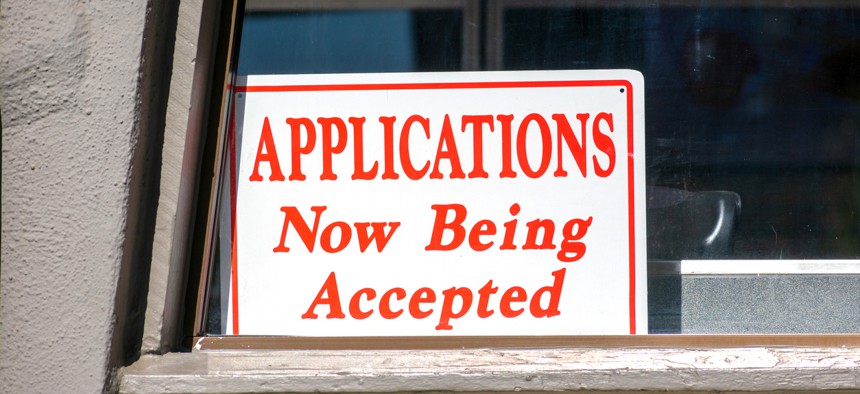Public and Private Sector Jobs Are Increasing Despite Covid Surge

istock.com/Michael Vi
The U.S. added close to a million jobs in July, including 221,000 in local government. But much of that data is likely skewed by pandemic fluctuations, according to the Bureau of Labor Statistics.
The United States added 943,000 jobs in July, the fastest growth in nearly a year spurred largely by summer travel and recreation even amid surging coronavirus cases and an ongoing labor shortage, according to federal data released Friday.
The jump in jobs was the largest since last August, according to the Bureau of Labor Statistics, which also reported a .5% decrease in unemployment, bringing the national rate to 5.4%, or 8.7 million people without jobs.
“These measures are down considerably from their highs at the end of the February-April 2020 recession,” the bureau said in its report. “However, they remain well above their levels prior to the coronavirus pandemic (3.5 percent and 5.7 million, respectively, in February 2020).”
The leisure and hospitality sector had the largest gain, adding roughly 380,000 positions. The majority of those jobs—253,000—were in bars and restaurants, the data showed, followed by hotels (74,000 jobs) and arts, entertainment and recreation (53,000). But overall employment in those sectors remains low compared to pre-pandemic levels, the agency said.
“Despite recent growth, employment in leisure and hospitality is down by 1.7 million, or
10.3 percent, from its level in February 2020,” the report said.
Local governments added 221,000 public education jobs, with an additional 40,000 positions gained in private education. But the agency said it’s likely those numbers were inflated.
“Staffing fluctuations in education due to the pandemic have distorted the normal seasonal buildup and layoff patterns, likely contributing to the job gains in July,” the report said. “Without the typical seasonal employment increases earlier, there were fewer layoffs at the end of the school year, resulting in job gains after seasonal adjustment. These variations make it more challenging to discern the current employment trends in these education industries.”
Other industries adding jobs included professional and business services (60,000), transportation and warehouses (50,000), health care (37,000) and manufacturing (27,000).
Wages rose across all industries, increasing by .4% for July, a change of 4% from the same period one year ago, bringing all nonfarm private employees to an hourly average of $30.54. The pay raise is likely due to employers adding incentives and higher pay to attract more workers, though the changes in wages are uneven across industries and employment changes during the pandemic have probably also affected the data, the report said.
“The data for recent months suggest that the rising demand for labor associated
with the recovery from the pandemic may have put upward pressure on wages,” it said. “However, because average hourly earnings vary widely across industries, the large employment fluctuations since February 2020 complicate the analysis of recent trends in average hourly earnings.”
The bureau also revised its employment estimates for previous months, adding 31,000 jobs to May and 88,000 jobs to June. Those recalculations are made after analysts receive additional reports and recalculate seasonal factors, the agency said.
It’s unclear how the surge of the coronavirus delta variant could affect jobs numbers going forward, economists said. If U.S. residents continue to be vaccinated and the outbreak can be contained, the impact “is likely to be more muted than past waves,” Daniel Zhao, a senior economist at Glassdoor, said in an analysis of the data.
“Employer action to incentivize or mandate vaccines is also a new feature of the latest wave, which may help mitigate spread, even as employers add more workers,” he wrote. “While payroll gains accelerated in July as the labor market made steady progress towards a recovery, today’s report is a last look at the labor market before the impact of the delta variant is fully felt.”
Kate Elizabeth Queram is a senior reporter for Route Fifty and is based in Washington, D.C.
NEXT STORY: Lack of Time Off Worsens Mental Health Problems for Public Health Workers





